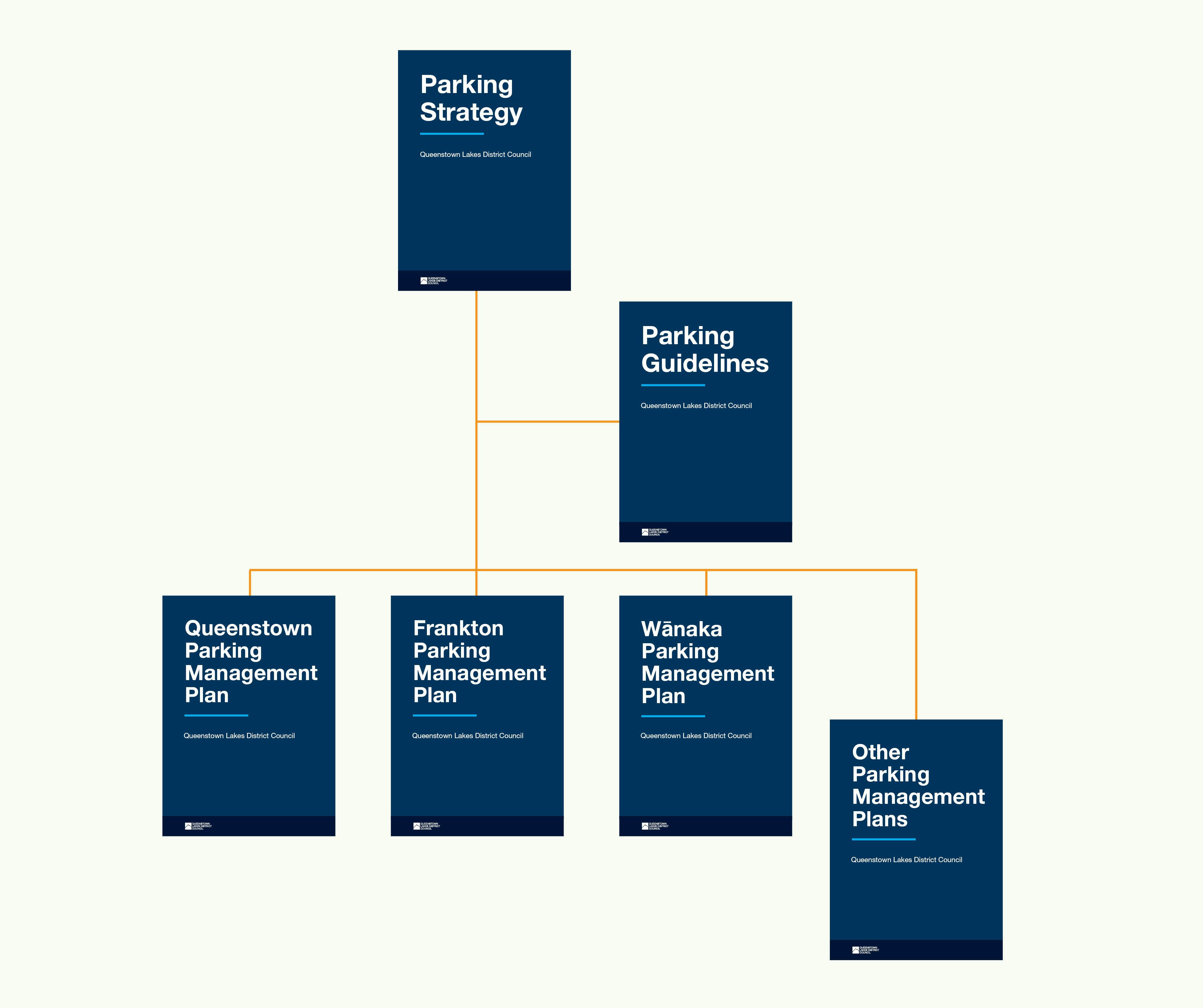A better approach to managing parking
LATEST UPDATE: FRIDAY 6 JUNE 2025
We’re in the final stages of updating our draft Parking Strategy, Parking Guidelines, and three initial Parking Management Plans to take to QLDC’s Infrastructure Committee for their approval to consult with the public on each.
As a reminder, the Strategy identifies why we manage parking, and the Guidelines identify how we’ll manage and prioritise it.
The first three Parking Management Plans focus on the most problematic areas of Queenstown town centre, Wānaka town centre, and the east side of Frankton, and will highlight specific changes we’re proposing to make in these areas.
Future plans will cover other areas like local centres, or even future growth areas if required.
Townships in the Queenstown Lakes District should be easy for everyone to get around, whether by foot, bike, car, or public transport. And when heading into town in a vehicle, parking should be easy to find and stress free. This means having enough parking in the right places for a variety of needs.
To achieve this, we need a better approach to managing parking.
Queenstown Lakes District Council has created a draft Parking Strategy to provide the direction and framework for making consistent and transparent decisions about parking, and to establish objectives and principles that will guide how parking is managed and prioritised in the district to achieve the future we all want.
Read on for more details about what we’re proposing as part of the draft Parking Strategy, and don’t forget to share your thoughts on parking too!
Why do we need a Parking Strategy?
Simply put, parking is a space used to store a vehicle that offers convenient access to a destination. And with our main town centres experiencing growing demands from a range of users with different parking needs, a change needs to happen now on how we manage and prioritise the use of public spaces. The need for these changes is being driven by:
- Population and visitor growth
- Emissions reduction
- Mode share
- Car dependency
- Congestion
- Quality of urban environments
- Removal of minimum parking requirements
- Parking pressure in residential areas
- Transport equity
The parking piece of the puzzle
We get it - parking is just one piece of the puzzle! Delivering parking solutions will help to resolve some issues in the district, but managing parking is just one of many ways to influence how we get around. There also needs to be practical transport alternatives and ways to achieve broader social, environmental, and economic outcomes for the Queenstown Lakes.
We continue to work with our local transport planning partners, Otago Regional Council and Waka Kotahi NZ Transport Agency, to improve transport networks across the district and implement travel demand management initiatives, such as integrated transport and land use planning, shared mobility, and behaviour change initiatives. These aim to encourage the use of other modes of travel, or reduce the need to travel at all, which will reduce the overall demand for parking.
Get informed on what’s proposed
Parking Strategy Objectives
Our draft Parking Strategy includes five objectives that outline the key outcomes we want to achieve through managing parking in the Queenstown Lakes District.
- Prioritise access according to user needs
- Encourage mode shift and reduce emissions
- Support a prosperous local economy
- Support a safe and efficient transport network
- Contribute to quality, people-focused urban environments
Principles
Our draft Parking Strategy also includes a set of principles to provide a framework for making decisions on how streets will be used and inform how parking spaces will be allocated and prioritised.
- Optimising what we have
- Proactively managing demand
- Providing quality information
- Adopting a tailored approach
- Being responsive to change
- Implementation of actions
- Prioritising the use of our public space
- Supporting the transition to low carbon modes
Have your say
Feedback closed on Sunday 28 January 2024.
Click here to read all online submissions received.
Click here to read all email submissions received.
What’s next?
We’re in the final stages of updating our draft Parking Strategy, Parking Guidelines, and three initial Parking Management Plans to take to QLDC’s Infrastructure Committee for their approval to consult with the public on each.
As a reminder, the Strategy identifies why we manage parking, and the Guidelines identify how we’ll manage and prioritise it.
The first three Parking Management Plans focus on the most problematic areas of Queenstown town centre, Wānaka town centre, and the east side of Frankton, and will highlight specific changes we’re proposing to make in these areas.
Future plans will cover other areas like local centres, or even future growth areas if required.

